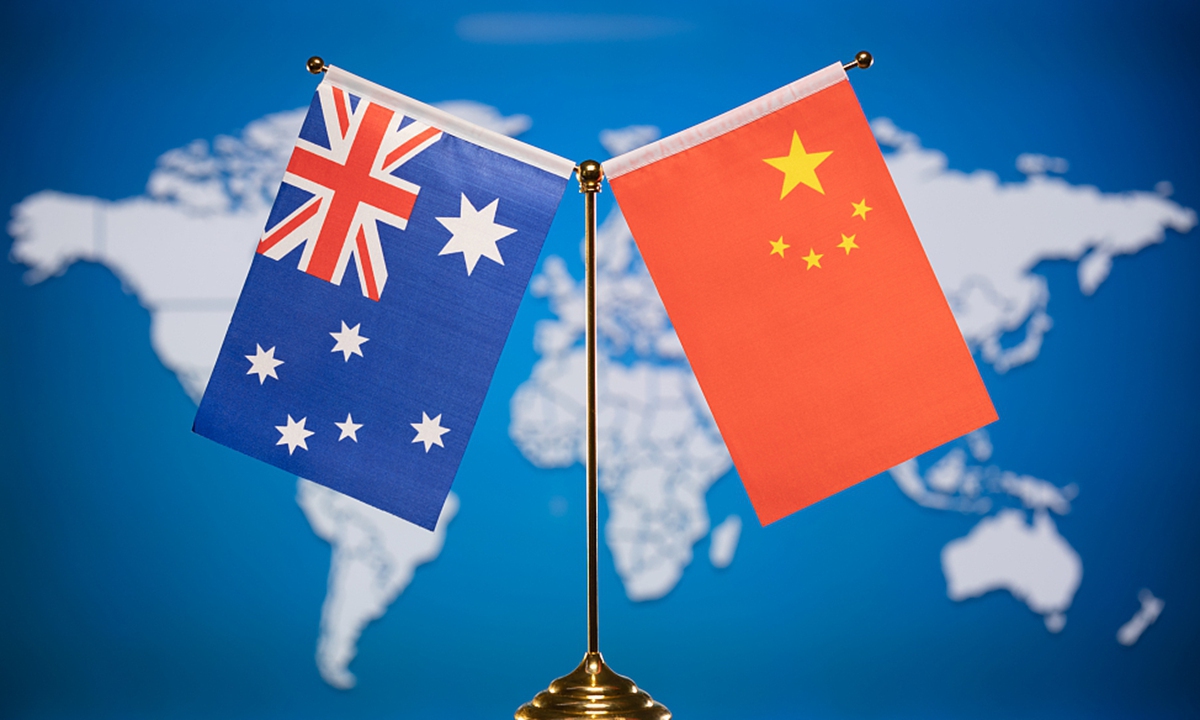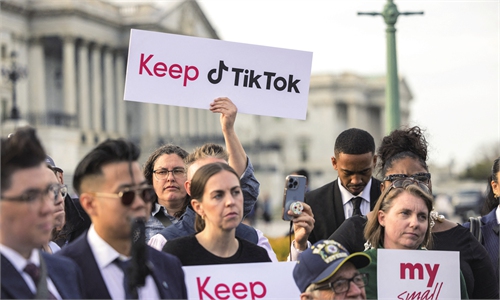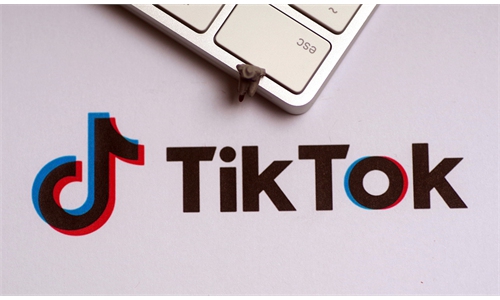Australian mulls restrictions on WeChat, a move to poison bilateral ties: experts

China Australia Photo: VCG
The Australian government is mulling fresh restrictions on Chinese social media giant WeChat citing "foreign interference" risks, following its previous ban of TikTok on government devices. TikTok is a popular short-video app owned by ByteDance.
The planned restriction by Canberra on Chinese social media, citing the clichéd reason of national security, is actually demonizing and framing up China and Chinese enterprises in a non-market and illogic way, which will hinder improvement of China-Australia relations that have been on an upward trend this year, expert said.
A senate committee, chaired by Liberal senator James Paterson, said on Tuesday in a report that "it had been particularly concerned with the unique national security risks posed by social media companies like TikTok and WeChat, whose parent companies ByteDance and Tencent respectively, are irrefutably headquartered in and run from China."
The ban of TikTok in government devices in Australia could be extended to the devices of all governmental contractors, which should also cover WeChat, the committee said.
In April, Australia said it would remove TikTok from all federal government-owned devices.
With Australia's ban, all members of the so-called Five Eyes intelligence-sharing network, which is composed of the US, Australia, Canada, Britain and New Zealand, have banned TikTok from government devices.
In the Tuesday report, WeChat was blamed for showing "contempt" for the Australian Parliament by failing to appear before a committee hearing in July, when executives from other social media companies, such as TikTok, Google and Twitter, appeared in Parliament House.
Despite the fact that WeChat offered written answers to the questions raised by the committee later on, it was doubted as "disingenuous answers," and "having comprehensively failed the transparency test."
It is worth noting that WeChat does not have a physical presence in Australia.
The Australia committee suggested that as part of the transparency requirements, social media companies that operate in Australia should be required to establish a physical office in Australia, so that they can be held accountable to local laws.
WeChat said in the answers that its users in Australia have declined almost 30 percent in the past three years without giving a reason for the decline, the Guardian Australia reported.
As of July 2023, WeChat had fewer than 500,000 daily active users in Australia and its user base in 2020 reached 690,000.
Chen Hong, president of the Chinese Association of Australian Studies and director of the Australian Studies Center at East China Normal University, told the Global Times on Wednesday that the requirement for WeChat that does not have an office in Australia to show at the hearing is not a reasonable and realistic one, "even purposefully putting obstacle for the Chinese firm."
"The chair of the committee, Senator Paterson is a notorious anti-China politician who is good at demonizing China," Chen noted.
Although the reported restrictions on WeChat concern only government devices, the hype related to data security as aired by Australian politicians would affect the daily usage of the app by its users, Chen said, adding that the app acts as an important bridge between Chinese diaspora and their friends or business partners in China.
"It is unwise for Canberra to blindly follow the US in attacking social media companies that have Chinese background amid the crucial period of improvement in bilateral ties," he said.
Australia should try to build on current good momentum, so that the bilateral ties will continue to progress, China's top diplomat Wang Yi said while meeting with Australian Foreign Minister Penny Wong earlier in July.
Wang expressed the hope that Australia would provide a fair, just and non-discriminatory business environment for Chinese enterprises to invest and operate in Australia.
Global Times



